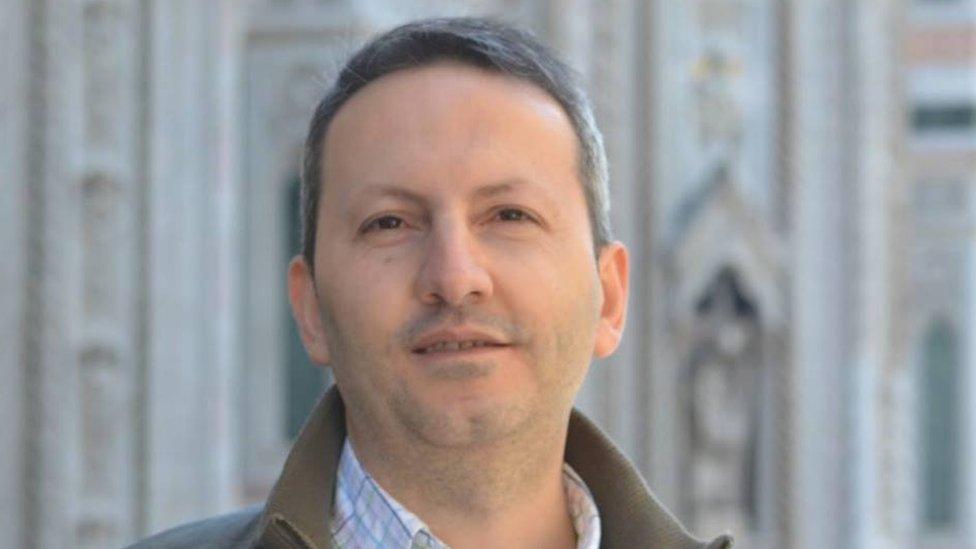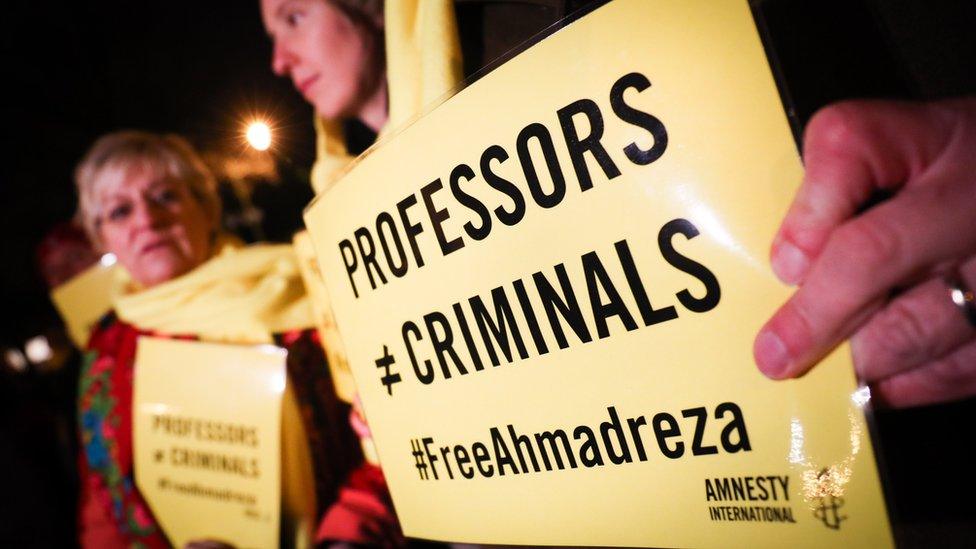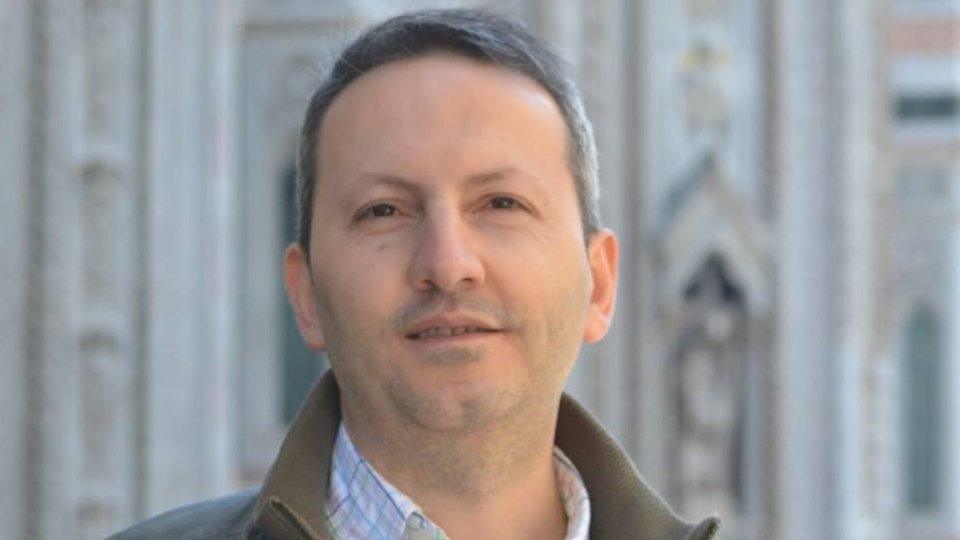Iran TV broadcasts jailed doctor 'confessing to spying'
- Published

Ahmadreza Djalali has previously stated that he is being held as a reprisal for refusing to spy for Iran
Iranian state TV has broadcast what it says is the confession of a Sweden-based Iranian national in jail in Iran.
The 17-minute programme purports to show 46-year-old Ahmadreza Djalali admitting he spied on Iran's nuclear programme for Israel.
Mr Djalali, an emergency medicine specialist, was sentenced to death on the charges in October.
Appearing relaxed in the footage, Mr Djalali says he was involved in an important defence project.
He says the project brought him into contact with Iran's top nuclear scientists, and that he regrets having betrayed their trust.
At least four Iranian nuclear scientists were assassinated on the streets of Tehran between 2009 and 2012, and the documentary suggests that Mr Djalali was responsible for identifying at least two of them.
Iran has always maintained that they were killed by agents of Israeli and Western intelligence agencies.
Ominously, says Kasra Naji from the BBC's Persian Service, the documentary was credited to have been produced by the counter-intelligence department of the Iranian intelligence ministry.
In October, a court in Iran sentenced Mr Djalali to death for spying - a charge that he and his wife previously consistently denied.
Five days ago, human rights group Amnesty International said the Iranian Supreme Court had upheld the sentence "through a secret and hasty process, external and without allowing any defence submission", despite repeated enquiries by his lawyers.

Supporters of Ahmadreza Djalali rallied outside the Iranian embassy in Brussels after Iran's Supreme Court upheld the death sentence against him
It said Mr Djalali had said in a letter from jail that he was being held in reprisal for refusing to use his connections in Europe to spy for Iran.
He was arrested in April 2016 while on a business trip to Iran. Amnesty says he was held without access to a lawyer for seven months, three of which were in solitary confinement.
While in solitary confinement, Mr Djalali has previously said, he was twice forced to make confessions in front of a video camera by reading out statements written by his interrogators.
He says he was put under intense pressure, through psychological torture and threats to execute him and arrest his children, to "confess" to being a spy for a "hostile government". But he said such claims were fabricated.
Iran is known to have broadcast forced confessions in the past.
- Published24 October 2017

- Published29 November 2010
